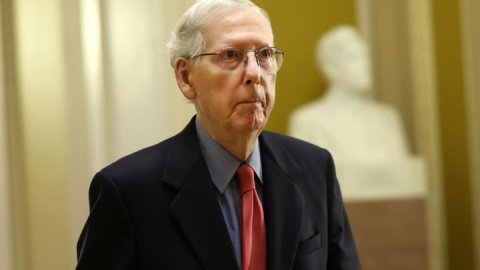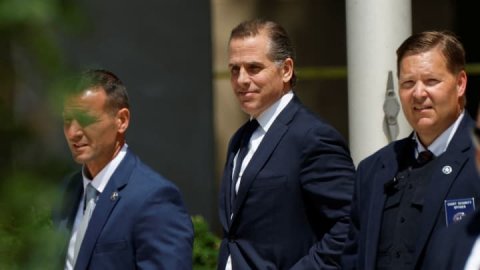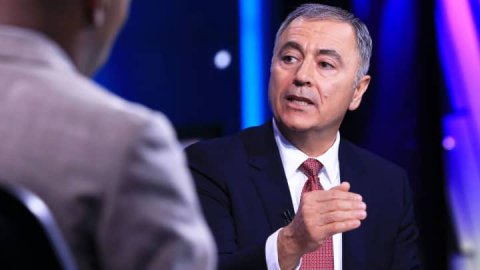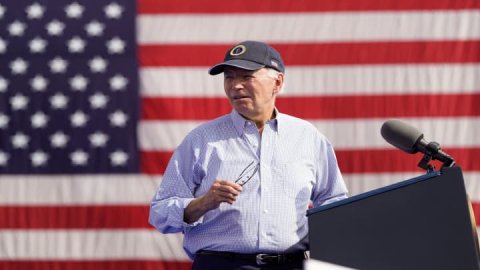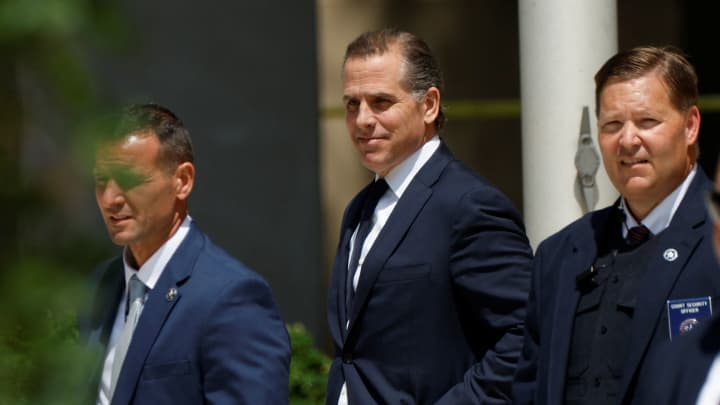
Federal plan to ask a grand jury to indict , the son of President , on gun-related charge before Sept. 29, they revealed in a filing Wednesday.
The plan was disclosed in a status report David Weiss filed in U.S. District Court in , six weeks after a planned plea deal that would have seen Hunter plead guilty to tax crimes — while avoiding conviction on the gun charge — collapsed after a judge questioned its terms.
A lawyer for Hunter later said Wednesday that the prior deferred prosecution deal is still valid for the gun charge, meaning that Hunter cannot be charged with that crime if he stays out of trouble for two years, at which point that case would be closed.
The lawyer, Abbe Lowell, also said the deal bars Weiss from filing any more charges against Hunter.
The gun charge that Weiss indicates he will seek from a grand jury prohibits people who are users of illicit drugs from possessing a firearm.
The constitutionality of that charge, at least in some cases, was called into question last month by a panel of judges on the , which overturned the conviction of a Mississippi man who was sentenced to prison for possessing firearms while being a user of marijuana.
The appeals panel tossed out in the conviction because the law as applied to the defendant in that case, Patrick Daniels Jr., conflicted with a 2022 Supreme Court ruling that voided a New York state law regulating gun possession because it violated the nation's "historic tradition of firearm regulation."
Read more of CNBC's politics coverage:
Hunter does still face charges of two counts of failure to pay federal income taxes on income of more than $1.5 million annually in 2017 and 2018. He entered a not-guilty plea to those counts at the July 26 hearing in Delaware where the plea deal fell apart.
Since then, Weiss' office and defense lawyers have argued in dueling court filings over whether their prior agreement to let Hunter escape prosecution on the felony weapons charge is in effect.
Weiss's filing Wednesday noted that federal law says that if prosecutors want to criminally charge a defendant they must do so within 30 days of that person being arrested or summoned to court, barring that clock being suspended for various legal reasons.
"The Speedy Trial Act requires that the Government obtain the return of an indictment by a grand jury by Friday, September 29, 2023, at the earliest," Weiss's office wrote.
"The Government intends to seek the return of an indictment in this case before that date. Thus, the Government does not believe any action by the Court is necessary at this time."
Hunter's lawyer Lowell, in a statement said, "We believe the signed and filed diversion agreement [on the gun charge] remains valid and prevents any additional charges from being filed against Mr. Biden, who has been abiding by the conditions of release under that agreement for the last several weeks, including regular visits by the probation office."
"We expect a fair resolution of the sprawling, 5-year investigation into Mr. Biden that was based on the evidence and the law, not outside political pressure, and we'll do what is necessary on behalf of Mr. Biden to achieve that," Lowell said in the statement, which was obtained by NBC News.
Hunter Biden, who had business dealings in China and Ukraine, for years has been the focal point of allegations by Republicans of corruption involving him and his father.
Neither Biden has ever been charged in connection with those allegations.
But Hunter Biden has been under criminal investigation by the U.S. Attorney's Office in Delaware, which Weiss leads, since 2018.
Weiss was appointed to that job by former President , who lost his reelection bid to Joe Biden in 2020. Trump is now seeking a 2024 rematch against Biden as the Republican nominee.
Weiss enraged congressional Republicans in June by offering Hunter a plea deal on relatively minor charges, ones that would nearly guarantee he would not serve any time in jail.
As part of that deal, Hunter agreed to plead guilty to the misdemeanor charges of failure to pay income taxes.
He also consented to a so-called pretrial diversion agreement, which would allow him to escape being charged with a felony of possessing a firearm while being a drug addict if he abided by the conditions of that agreement.
On July 26, Hunter and prosecutors appeared in Delaware federal court before Judge Maryellen Noreika, with both sides expecting to formalize that deal.
Instead, the deal collapsed after Noreika questioned prosecutors about its terms, particularly the condition that called for the judge — and not the Department of Justice — to decide whether Hunter was complying with the gun-charge diversion agreement over a two-year period.
That condition was widely seen as insurance against Trump pressuring the DOJ to find Hunter in noncompliance with the agreement if Trump returned to the White House.
Noreika, who herself was appointed by Trump, gave Hunter's lawyers and prosecutors time to redo the deal to address her concerns. But those discussions failed.
Weiss last month asked Attorney General Merrick Garland to appoint him special counsel in the case, which Garland consented to.
Shortly afterward, Weiss said Hunter Biden would likely face trial in either California or Washington, D.C., for the tax crimes.
Hunter's attorneys last month told Noreika that Weiss had reneged on the previously agreed deal on the tax crimes. Defense lawyers also argued that the gun-charge diversion deal was still "valid and binding."
Weiss's office has said the gun agreement is now off the table, and that it is not valid because it was not signed by the U.S. Probation Office.
But in their separate court filing Wednesday, Hunter's lawyers said they still believe the deal is in place, and said he is complying with its conditions.

